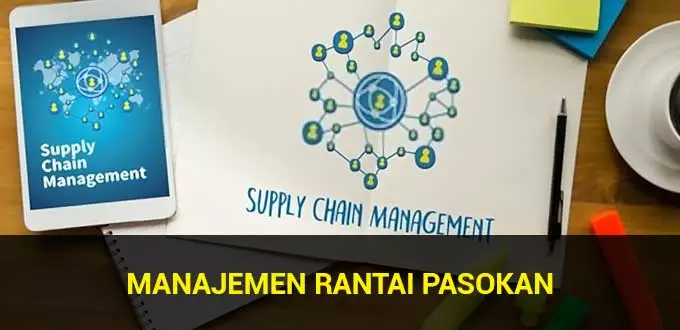
Supply Chain Management is a complete cycle of chain management starting from raw materials from suppliers to producers into finished goods or services, continuing to distribution to consumers. Therefore, a supply chain is very important in the economy because if one of the producers, distributors, or retailers experiences a disruption, it will have fatal consequences for consumers.
Especially if the goods produced are daily staples, this can have fatal consequences. For example, Indonesian rice production suddenly drops 50% from the target, then we will not be able to meet consumer needs. This will result in an increase in prices, which will have other implications. Therefore, it was found that in order to meet the need for rice, the government imported in order to maintain price stability.
Given the importance of the Supply Chain, we will look at the role and function of each component starting from Manufacturers/Producers , Distributors, Retailers and Consumers. Each of these components must be able to provide added value so that the goods or services received by consumers or customers match the price paid. Without the added value provided, the supply chain will not survive and may change.
An example that we often face today is the role of many Distributors who experience disruption. This happened because of the development of information technology. By using Online Sales, Manufacturers who used to have difficulty reaching direct customers can now directly use the Online Store to directly connect with customers. This can certainly throw off the role of the Distributor, if the Distributor in the supply chain is deemed no longer providing added value. Of course, the shorter the supply chain of an item will make goods and services more accessible to customers, both in terms of faster service times, lower prices, even better quality because they arrive faster.
What is Producer?
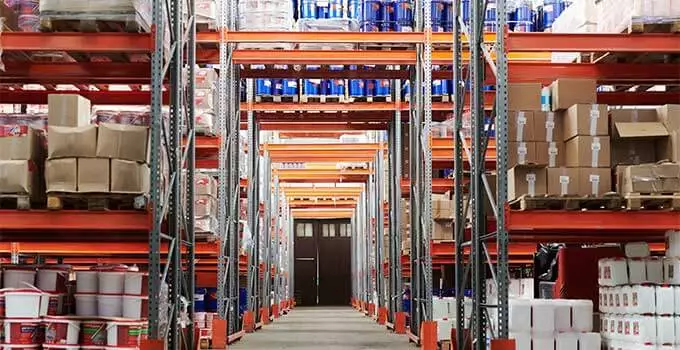
Also read: MSMEs are: Definitions and Criteria that must be known
The production process carried out by producers, aims to increase the added value of an object or create a new object that is useful to help meet the needs of many people or consumers/customers.
An example of a small company producer is a furniture craftsman. Furniture craftsmen buy wood, bamboo, and additional materials such as glue, nails to produce wood into furniture. The resulting furniture will have a higher selling value, this is because there is an element of service in designing, building to become furniture. Of course, it is worth much more than just being sold as wood.
Functions and Roles of Producers
- To produce goods and or services according to the customer needs, at a price that is in accordance with the added value provided.
- Provide added value to the value of the previous goods or services. Thus increasing the value of the finished goods or services provided.
- Ensuring the quality of goods and/or services produced and/or traded based on the prevailing quality standards for goods and/or services
- Produce new, innovative goods or services to help consumers. For example, cell phone manufacturers continue to innovate to create new products to continue to help consumers.
- Creating products that help with existing problems, for example producing environmentally friendly plastics.
- Provide true, clear, and honest information regarding the condition and guarantee of goods and/or services and provide an explanation of the use, repair, and maintenance.
- Treating or serving consumers correctly and honestly.
- Providing and opening up employment opportunities as well as being a place for economic activities to take place that is useful to society and the state, in order to help achieve the prosperity of every worker, company and ultimately help the State.
- In the production process, producers are responsible for carrying out the rules or regulations where they are located, in order to provide benefits not only to customers but also to the communities around which the producers operate.
What is a Distributor?
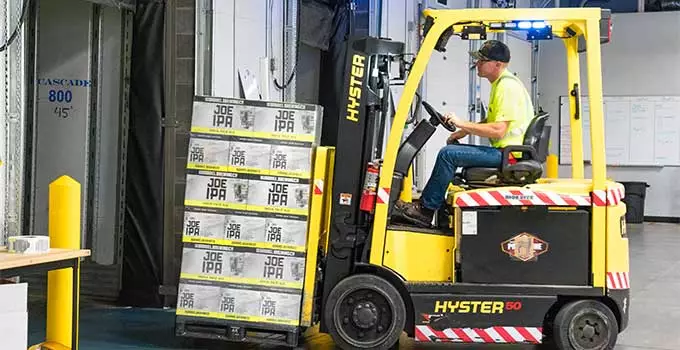
Distributors or distributors are parties who take goods in finished form from producers, without any change or modification process that he does, then sell again with the same goods and/or services. Sometimes, if a process occurs, the distributor is generally limited to packaging. Example: Distributor buys hand washing soap in the form of DRUM, where each drum contains 50lt of cleaning liquid. Then the distributor carries out the packaging process into 500 ml, 1-liter packages, and so on.
In certain supply chains of goods, distribution does not only have one level, but there are distributors who buy from producers, then there are wholesalers who buy from distributors and then distribute to retailers or consumers. Of course, this really depends on the needs of each producer, the type of goods, the speed of distribution, the reach of the target market.
Functions and Roles of Distributor
- For producers, distributors have a role to help distribute goods and services produced by producers to customers, both retailers, and consumers, so those producers can focus on monitoring the continuity of production and quality of goods.
- For producers, distributors also play a role in getting customers who are in accordance with their area, and can also serve customers or consumers better, because of the close location between distributors and consumers or customers. This can be done by conducting promotions in accordance with regional conditions in each distributor.
- For Producers, Overseeing price stability, because an item that is piled in one place can lower the price while in an area with difficulty the price of goods tends to rise.
- For customers, the distributor’s role makes it easier for consumers to get or buy the goods or services needed. One of them is by building distribution centers that are spread across every province. Thus, producers located in only one area, such as Jakarta, can distribute their goods throughout Indonesia with the help of distributors who have a network of warehouses throughout Indonesia.
What is a Retailer?
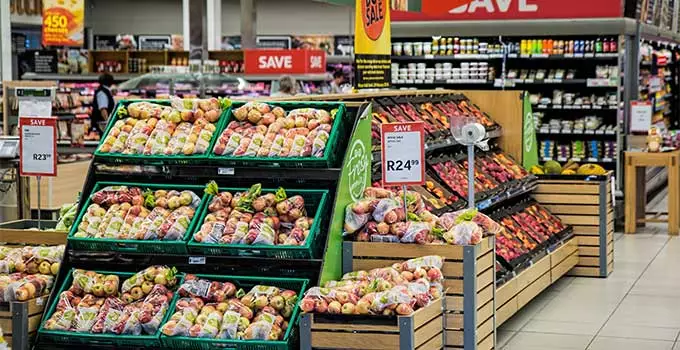
An organization or someone who runs this business is also known as a retailer or retailer. In practice, retailers purchase goods or products in large quantities from producers, or importers, either directly or through wholesalers, to be resold in small quantities.
Currently, the term retail is becoming very common, due to the proliferation of the retail business and is supported by the property industry such as malls which are widely spread, so that the terms modern retail and traditional retail have emerged. One of the characteristics of traditional retail is that there is still a bargaining process, while in modern retail the price is clear and non-negotiable.
Also known as the retail business, retail acts as a marketing intermediary that connects major producers or large wholesalers with consumers who buy in small quantities or units. After buying a certain number of goods from a larger business group, the retailer or retailer will resell the goods by setting a certain additional price for a profit.
Functions and Roles of Retailers
- Marketing and Sales.
Retailers serve as an important marketing channel for goods from producers. The right placement, banners, advertisements, offers, and other strategies can be implemented by manufacturers to increase their sales in these retail stores. - Make it easy for consumers to get the goods and services needed.
In offline retail or regular stores, the importance of store location is generally emphasized, this is so that goods are easily accessible to consumers. This is still evident in minimarket retail where store location is very important to ensure the success of a retail store.
With the development of online retail, it does not mean that offline retailers will die immediately but must be adjusted to the type of goods. - Increase Value-Added Goods.
Because retailers are the spearhead of sales to end consumers, it is important to provide added value. For example providing services to customers, especially loyal customers, customer promo programs, providing installation services for items sold, or service guarantees - Offering a variety of goods at various prices.
Prices offered by retailers are generally higher than distributors, because the role of retailers as the term implies is breaking down goods into smaller units to be purchased and used for personal consumer needs. - Provide benefits for Producers and Distributors.
Together with distributors and manufacturers, brand owners think and try to make the goods offered sell quickly.
What is Consumer?
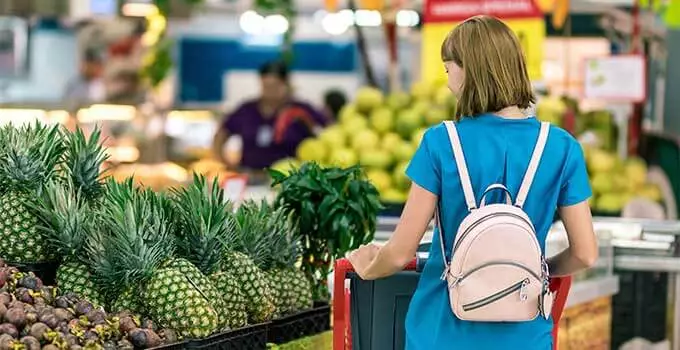
As users of products produced by producers, the role of consumers are the most important, without the presence of consumers, all supply chains will not work, therefore consumers are the key to the sustainability of a product.
The Role of Customers
- The consumer determines the success of the producer and his supply chain. Because as the end-user of goods or services that have been produced by the producer. A good or service from a producer that can be received well by consumers can make the producer grow and develop.
- Consumers play an important role in creating an increase in the national income of a country. Indonesia, with a population of more than 280 million relies heavily on consumption from local consumers to increase economic turnover.
Conclusion
After we study the supply chain relationships of producers who make goods and/or services, sell them through distributors, then distribute them to retailers, so that they can finally be reached by customers. It is very clear that all components play an important role. If one does not work well then the consumer does not get the goods he wants or needs. Therefore, each component must be able to provide the best value-added so that the product can be received by consumers with good quality, accessible, and also at the right price.




